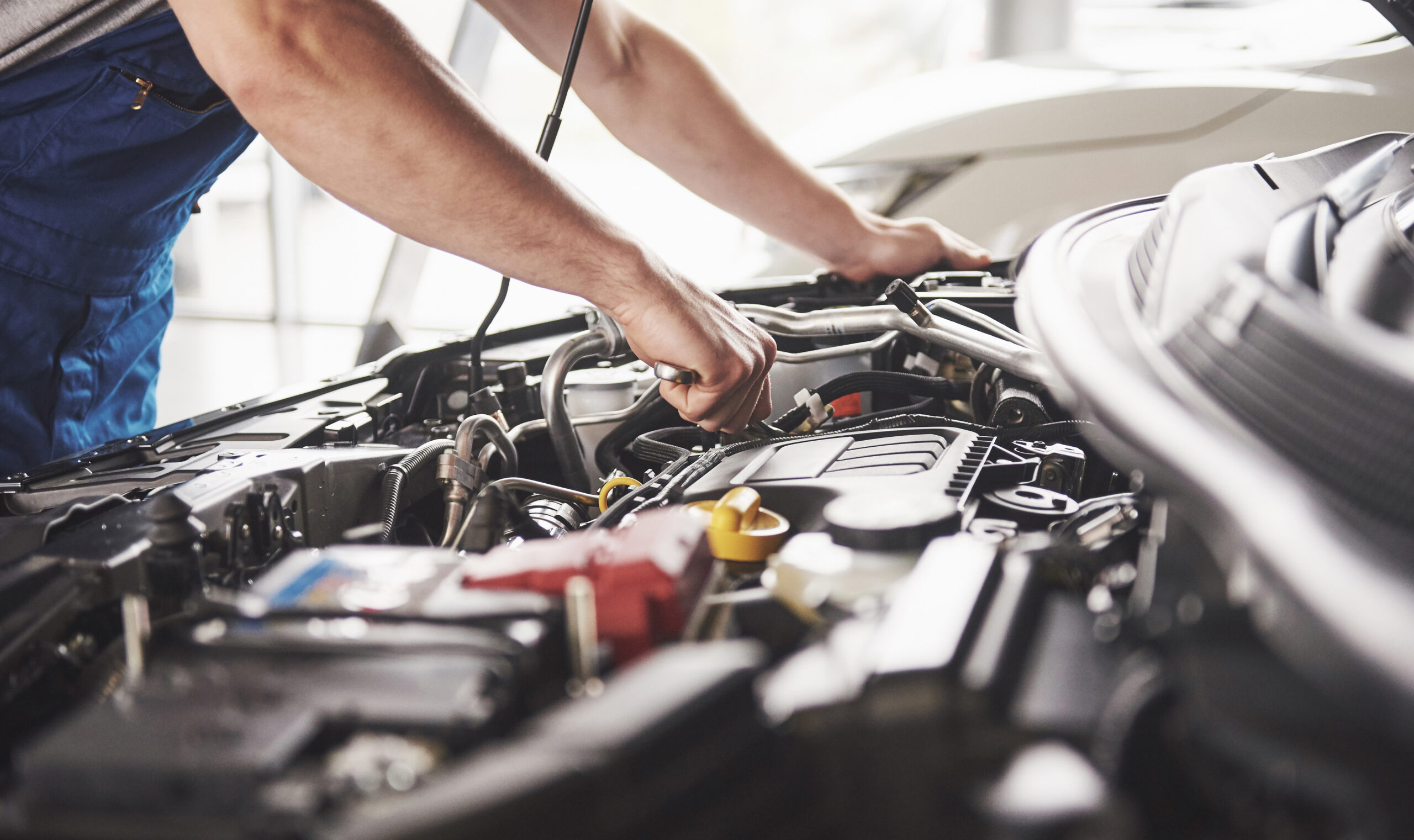
West Virginia offers a picturesque landscape that is as challenging as it is beautiful. The state’s mountainous terrain and winding roads present unique vehicle challenges, necessitating proactive maintenance strategies to maintain safety and reliability. Regular vehicle care is vital in conditions where automobile demands are significantly greater than in flatter, straighter regions. Understanding the specific needs of a vehicle driven in this state can prevent sudden breakdowns and ensure smooth, safe travel through its scenic routes.
West Virginia’s challenging landscape demands additional vehicles, highlighting the need for meticulous maintenance practices. The rugged terrain tests the limits of vehicle endurance and emphasizes the importance of regular upkeep to ensure optimal safety and performance. Key aspects such as tire maintenance, brake checks, and suspension servicing become routine care and critical investments in vehicle longevity and driver safety.
Regular Maintenance for Peak Performance: Vehicles in West Virginia are subjected to continuous stress due to steep inclines and sharp curves. Regular maintenance checks help identify potential issues before they escalate into costly repairs, thereby preserving the vehicle’s performance and ensuring driver safety.
Tire Care Is Essential: Proper tire maintenance is imperative. Tires should be checked regularly for wear and tear and must have the correct pressure to handle the uneven terrain without faltering. Additionally, using tires suitable for mountain driving can greatly enhance grip and stability.
Brake Inspections for Enhanced Safety: Due to the frequent braking required on downhill roads, brake systems are prone to wear quickly. Regular inspections ensure the brakes remain responsive and effective, preventing potential failures that could lead to accidents.
Suspension Servicing to Withstand Rough Roads: The suspension system absorbs much impact on rough terrain. Servicing it regularly helps maintain vehicle stability and comfort, reducing the risk of damage to other components.
Proactive Maintenance Reduces Costs: Proactive maintenance not only helps keep the vehicle in prime condition but also reduces the likelihood of severe breakdowns. It is a cost-effective strategy that saves money in the long term by avoiding expensive repairs and extending the vehicle’s operational lifespan.
| Component | Flat Terrain | Mountainous Terrain |
| Tires | Even wear | Uneven wear, more frequent replacement |
| Brakes | Less strain | More strain, require frequent inspection |
| Suspension | Less stress | More stress, need regular servicing |
How does West Virginia’s terrain affect vehicle maintenance?
West Virginia’s mountainous terrain and winding roads put extra strain on vehicle components like tires, brakes, and suspension. These components require more frequent inspections, servicing, and replacements to ensure safety and prevent breakdowns than driving on flat terrain.

Vehicle maintenance, or car maintenance, involves routine servicing and repairs essential for extending the lifespan and ensuring the efficient operation of an automobile. It’s a crucial aspect of vehicle ownership, encompassing services from oil changes to detailed system inspections.
Effective maintenance improves a vehicle’s performance, reliability, and fuel efficiency. It also helps avoid costly repairs by catching minor issues before they escalate.
Enhanced Safety: Regular inspections are crucial for identifying potential safety hazards, helping to prevent accidents, and maintaining safe driving conditions.
Reducing Environmental Impact: Regularly maintained vehicles perform better and emit fewer pollutants, thus minimizing their environmental impact. Routine tasks like oil changes and tire rotations are integral to maintaining a cleaner operation.
Maintaining Reliability: Consistent maintenance ensures a vehicle runs smoothly year-round, avoiding unexpected breakdowns and extending its life.
Maximum Value Retention: A well-maintained vehicle retains more value and is more attractive to buyers when it’s time to sell or trade it in.
Cost Savings: Regular maintenance can prevent small problems from becoming big, expensive ones, ultimately saving money on repairs.
Regular vehicle maintenance is essential for optimizing performance, ensuring safety, minimizing environmental impact, preserving value, and saving money. It’s an indispensable practice for responsible vehicle ownership.
Regular vehicle maintenance is essential for car owners who want to ensure their vehicle operates smoothly and economically. Routine care prevents costly future repairs and brings several direct benefits that enhance the driving experience and vehicle longevity.
Safety: Regular maintenance is critical for identifying potential safety issues before they pose a risk on the road. Addressing problems such as faded headlights, damaged windshields, worn belts, faulty brakes, and old tires is fundamental to ensuring both driver and passenger safety.
Increased Fuel Economy: Maintaining optimal engine performance through regular oil changes and checks on filters and spark plugs can significantly improve fuel efficiency. This is increasingly valuable as fuel prices continue to rise, making efficiency a priority for most drivers.
Reliability: A reliable vehicle must undergo routine maintenance like oil changes, filter replacements, and brake inspections. Reliable vehicles provide more freedom and ease, particularly when planning travel or commuting for work, as they minimize the likelihood of unexpected breakdowns.
Performance Enhancement: Proper maintenance and upgrades can substantially improve a vehicle’s performance. Installing advanced air intakes and chip tuning kits are enhancements that can boost a vehicle’s performance. These upgrades often require professional installation by mechanics specializing in modern performance tuning.
Cost-effective Strategy: It might seem economical to delay maintenance until parts fail, but regular maintenance is far more cost-effective. Neglecting routine care can lead to severe damage that costs much more to repair than maintaining the vehicle would have. For instance, engine damage from inadequate lubrication can be extremely costly.
Adhering to the manufacturer’s recommended maintenance schedule helps car owners save money, reduce the risk of wear-and-tear-related failures, and avoid unnecessary repairs.
Ensuring your vehicle remains in top condition is crucial, whether you drive professionally or simply as part of your daily routine. Regular maintenance not only extends the life of your vehicle but also reduces the likelihood of costly repairs and enhances overall performance. While routine servicing might seem like an added expense, it is vital to consider the maintenance of the following five key components:
Air Filter Maintenance: Air filters can become clogged with dust and debris, which makes it important to check and replace them regularly. A blocked air filter can lead to reduced engine power, slower acceleration, and increased fuel consumption. Regular replacements ensure your engine breathes clean air, crucial for maintaining optimal engine efficiency.
Oil and Fluid Changes: Regular oil changes are necessary to ensure that engine components are properly lubricated, preventing premature wear. Other vehicle fluids, such as brake, transmission, and coolant, should also be checked and replaced. These fluids degrade over time due to usage, moisture, or corrosion, affecting vehicle performance and safety.
Tire Maintenance: Tires need regular attention, including rotation, balancing, and alignment. This is particularly important for those who frequently drive on highways or undertake long trips. Professional inspections should be conducted to ensure that the tire tread is within safe limits and that tires are replaced when worn out to maintain optimal safety for the vehicle and other road users.
Brake Inspections: Keeping your brakes in good condition is essential for safe driving and preventing accidents due to ineffective stopping. During regular maintenance intervals, brakes should be checked for wear and damage. This includes examining the brake pads for uneven wear, which can lead to quicker deterioration and reduced stopping capability. Proactively replacing brake pads can prevent accidents and save lives.
Suspension System Service: The suspension system, including shocks, struts, and springs, should be inspected at least annually or more often for those who frequently drive off-road. A well-functioning suspension system ensures stability and smoothness in handling various road conditions, such as potholes and speed bumps. Also, checking and maintaining fluid levels, including power steering fluid, per manufacturer guidelines is crucial. These checks help mitigate the effects of rough roads and maintain overall vehicle safety and comfort.
Maintaining these critical components ensures your vehicle operates efficiently, remains safe, and retains its value over time. Regular checks and maintenance are investments in your vehicle’s longevity and reliability.
West Virginia’s unique terrain demands diligent vehicle maintenance to ensure safety, reliability, and performance.
Focusing on critical components like tires, brakes, suspension, alignment, and fluids can help drivers confidently navigate the state’s winding roads.
Regular inspections and proactive servicing prevent costly breakdowns, enhance fuel economy, and extend vehicle lifespan.
Proper maintenance is a cost-effective strategy that pays dividends in the long run.
At Manchin Injury Law, we understand the challenges of driving in West Virginia. That’s why we’re committed to helping our clients stay safe on the road.
If you’ve been involved in an accident due to another driver’s negligence or poor road conditions, our experienced attorneys are here to fight for the compensation you deserve.
Don’t let vehicle damage or personal injuries derail your life – contact Manchin Injury Law today for a free consultation and let us put our expertise to work for you.

Associate Attorney at Manchin Injury Law Group
Practice Area: Personal Injury

Attorney Timothy Manchin established the Manchin Injury Law Group in 2011 after his law partner of more than 25 years became a West Virginia circuit court judge. His focus is on helping individual clients and entire families victimized by negligent acts.
We offer a free initial consultation at our office in the Manchin Professional Building — our home since 1983 — conveniently located in Fairmont.
If you are unable to visit our firm, we can come to your home or hospital room.
Fill out the form below to get in touch!